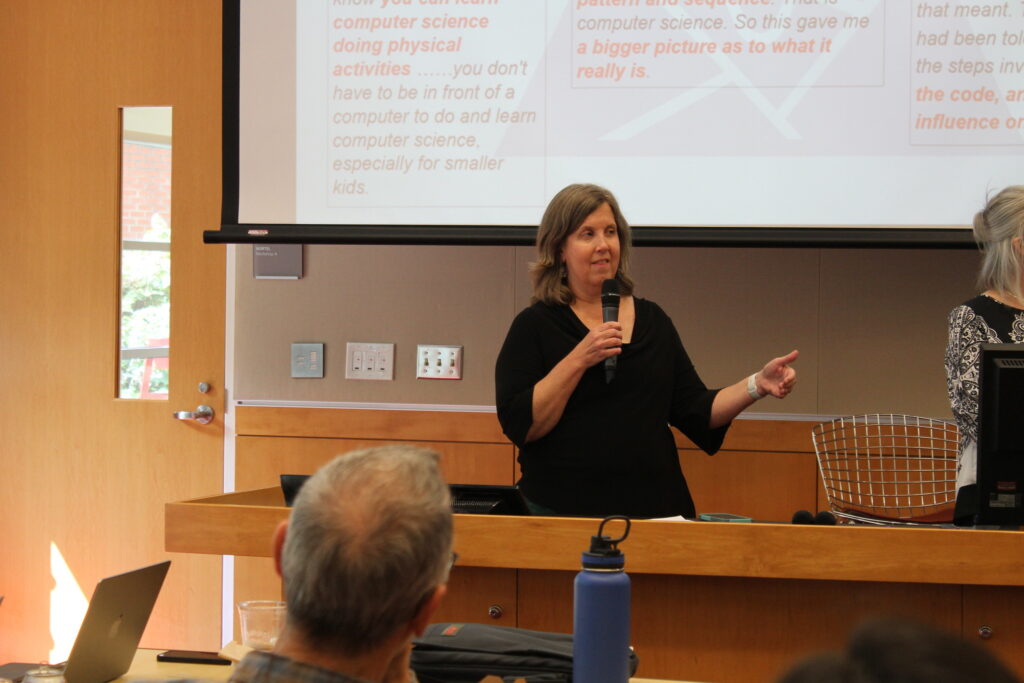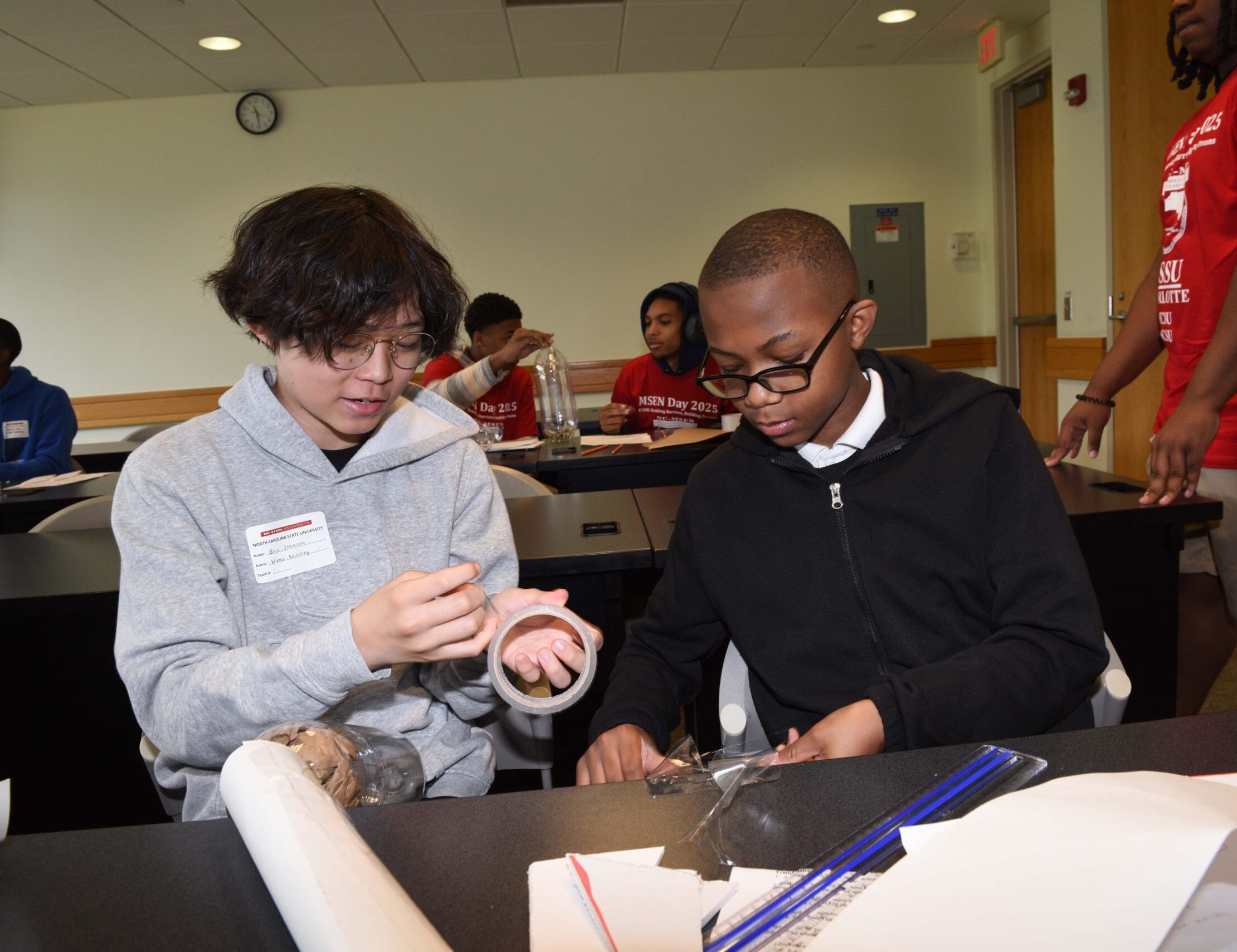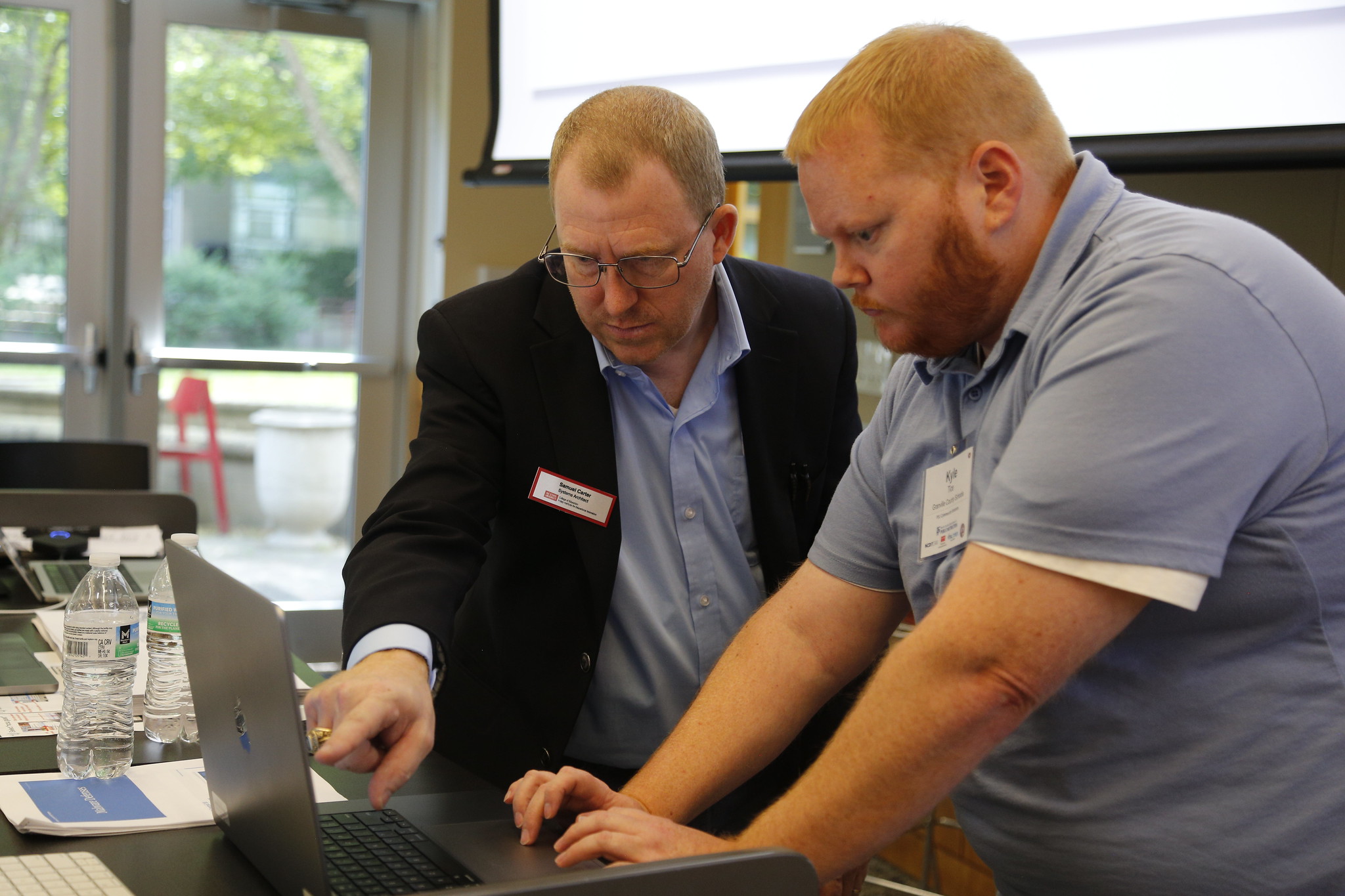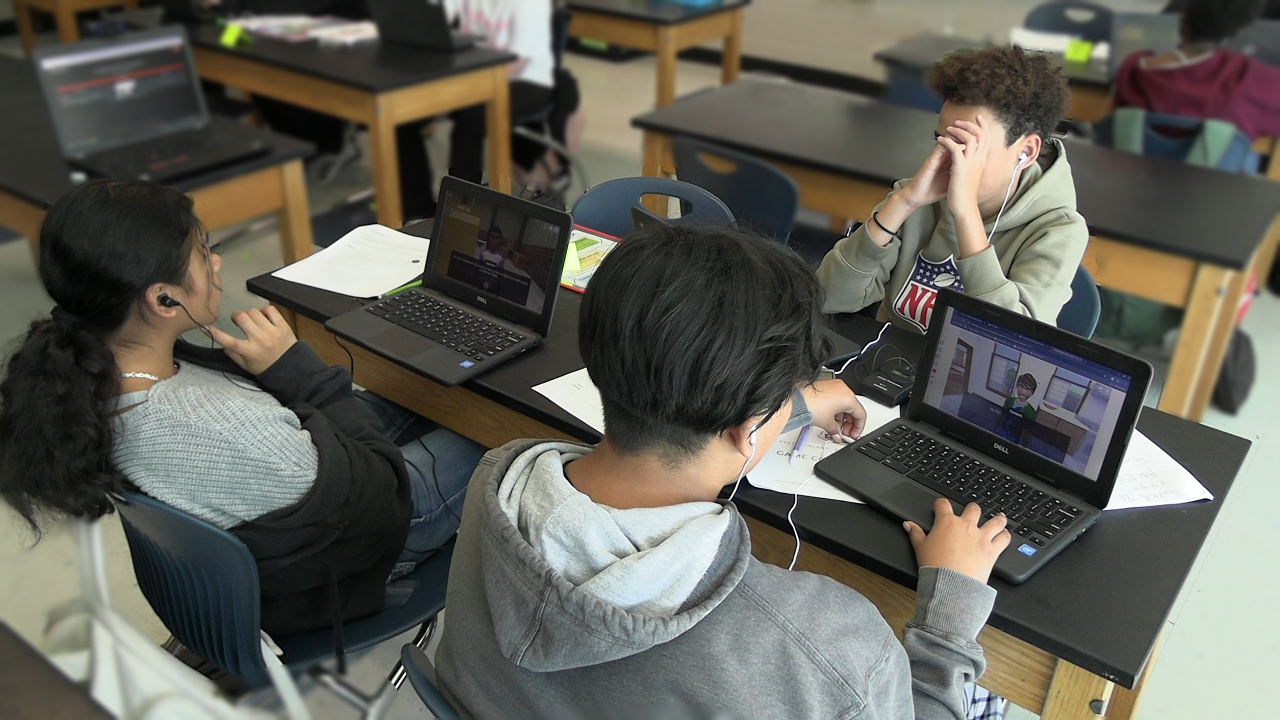Catalyst Grants Support Educators to Improve Instruction, Access and Advocacy

Since 2018, the Friday Institute for Educational Innovation and NC State’s College of Education have provided funding for more than 20 research projects through Catalyst Grants to support collaborative research projects between faculty and staff of the two groups and aid research that could lead to further inquiry and support. Krista Glazewski, executive director of the Friday Institute and associate dean for translational research in the College of Education, sees these grants as acts of hope.
“What excites me about programs like this, and why I’m excited to be here today, is because I think that every research project and all of our research work that we undertake is really an act of hope,” said Glazewski during the Catalyst Grant Symposium Oct. 3. “We see a world and we envision a world that we wanna live in someday, and we create the conditions for that world to happen. We create the conditions for understanding what it would take and then we work to realize that, and that’s why I’m so excited to hear about the culmination of this work today and to hear about these three projects.”
This year’s Catalyst Grant projects examined virtual academies and their opportunities, challenges and needs for students and educators; climate change instruction and teacher knowledge of climate change solutions; and the chance to increase pre-service elementary teachers’ capacity to address computer science and computational thinking concepts in the classroom.
Learn more about the three projects below.
Virtual Academies in North Carolina: Examining Profiles, Issues and Trends
In 2022, the Friday Institute and North Carolina Virtual Public School (NCVPS) partnered to create the Virtual Schools Network (VSN) in an effort to help identify and support critical needs surrounding various virtual learning environments. Florence Martin, a professor in learning, design and technology in the College of Education, sits on the VSN board and was interested in further research to support the VSN. With Co-Principal Investigator and Research Scholar Amy Walter, Martin and her team received a Catalyst Grant to develop school profiles for VSN school partners and examine opportunities, needs, challenges and experiences of students, teachers and administrators in virtual academies.
After surveying and/or interviewing 14 virtual academy leaders in the VSN, the team found that the average K-12 virtual learner is Black or white, can have a demanding schedule in athletics or extracurricular activities, and is more likely to be enrolled in higher grades due to online skills limitations. Virtual teacher characteristics varied, with some schools having over 30 full-time teachers and others having fewer than seven. Virtual schools ranged in enrollment from 34-664, varied in school improvement plans, and had challenges in providing specialized classes due to limited resources.
The team found that virtual school challenges included equitable access to resources, social isolation and an ongoing effort to maintain engagement and motivation. There are opportunities for virtual schools though to offer course options and flexibility, uninterrupted instruction and personalized support. The team sees their findings as valuable data for virtual academy leaders, teachers and parents; legislators; researchers; curriculum designers and technology developers. To dive deeper into their findings, view their presentation here.
Climate Change Instruction: Science Teachers’ Perspectives, Experiences and Instructional Visual Displays
To enact meaningful, global-scale climate change mitigation and adaptation strategies to combat climate change, researchers Gail Jones, Meghan Manfra, Sarah Carrier and their project team believe well-designed instruction about climate change is needed. For their Catalyst Grant project, Jones, Alumni Distinguished Graduate Professor in the College of Education and senior faculty fellow at the Friday Institute; Manfra, a professor of social studies education in the College of Education; and Carrier, a professor of science education in the College of Education, wondered how science teachers framed their climate change instruction, what displays were used and what sources they used for visual display instruction.
“I love Catalyst Grants because sometimes you just have a quirky, interesting, weird idea and you wanna go explore it,” said Jones. “So [with a] relatively small [amount] of money we can…have a lot of impact.”
The team worked with 25 biology and earth/environmental science teachers to analyze several of their visual displays to teach climate change, from photos to graphics to diagrams.
Educators used displays to visualize data, set the context or introduce the topic and show the seriousness of the impact of climate change. Sources varied, with the largest percentage of sources coming from a government website, scientific websites or another teacher or colleague. Teachers reported high self-efficacy for teaching about climate change, expressed high concern for others and themselves, and said that their choices about images is linked to a desire to make it relevant to students. Researchers found that some sources of images were not clearly reliable or valid.
In the future, the researchers would like to probe more into teacher motivations to teach about climate change, the role pushback plays into that motivation, and the roles education researchers and climate scientists can play to help teachers find access to trusted resources to visualize and talk more accurately about this issue.
Preservice Access to Computing Knowledge (PACK) Success
The Friday Institute’s Making Computer Science Stick program created and developed a sustainable community of elementary teachers to support ongoing integration of computer science (CS) concepts into core content areas. The goal of the program is to ensure that every student in North Carolina has the opportunity to experience CS regardless of historical stereotypes and institutional barriers.
Rebekah Davis, research associate at the Friday Institute, and Temple Walkowiak, associate professor of mathematics education at the College of Education, wondered how they could expand on this project idea with pre-service teachers. They wanted to increase pre-service elementary teachers’ capacity to address CS/CT concepts in the classroom through training and support and explore and compare preservice teachers’ needs and perceptions of the effectiveness of the program to in-service teachers’ needs and perceptions.
Davis and Walkowiak worked with 10 pre-service teachers who participated in four professional development sessions, two online and two in person, for professional growth units (PGUs). Educators most enjoyed the unplugged lesson plan materials where they could teach CS concepts without technology. After the sessions, teachers shared they had increased self efficacy in teaching computer science, were more confident in how to incorporate CS concepts in their instruction and had a more expansive definition of CS.
“I definitely feel more confident now about my ability to teach computer science and know how to incorporate different skills and activities across content areas,” said one participant. “I know there are lots of resources available to me in assisting with questions my students or I may have.”
The team will continue to offer PGUs through a National Science Foundation grant, Improving Undergraduate STEM Education: Computing in Undergraduate Education, they’re on with Georgia State University.
- Categories:


